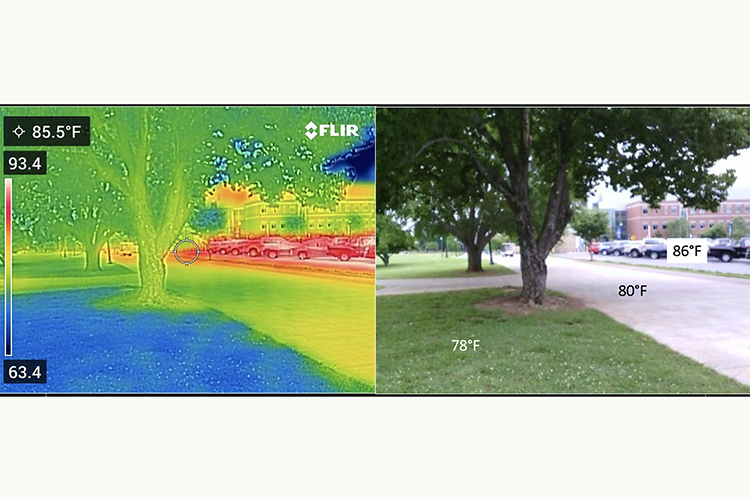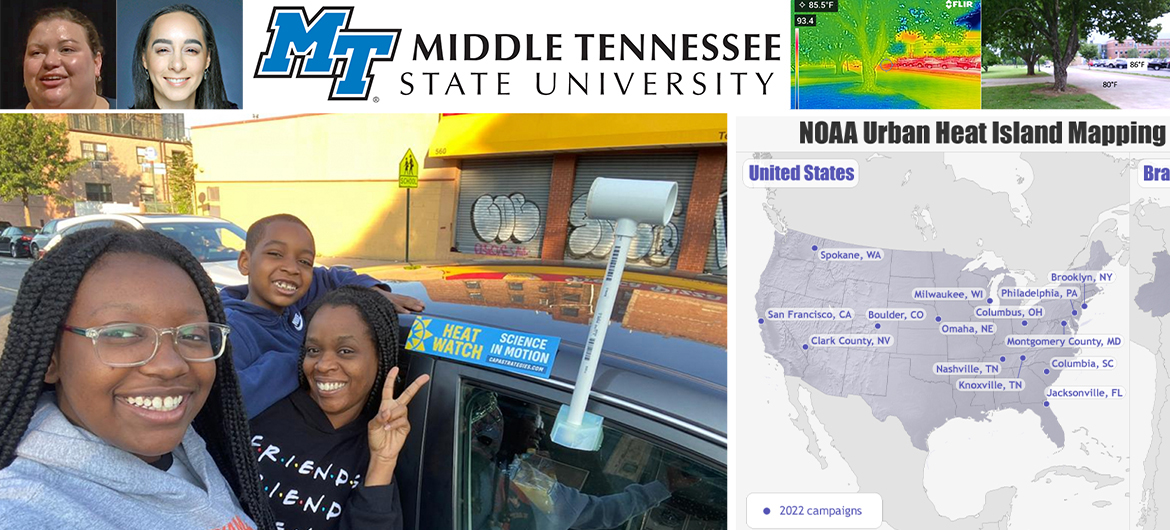MTSU faculty partnered with the city of Nashville and other local organizations to become one of 14 U.S. cities participating in a heat mapping study, and now the research team needs “community scientist” volunteers to help collect data this August.
The National Oceanic and Atmospheric Administration’s Heat Mapping Campaign for 2022 is a community-led project that employs local teams to map the climate in areas designated as urban heat islands — city environments that can be up to 20 degrees hotter than surrounding rural areas and neighborhoods.
The resulting heat and humidity map will then be used to identify and help communities manage neighborhoods vulnerable to extreme heat, according to a NOAA press release.
Cities from previous campaigns have used their heat data to develop heat action plans, add cooling stations to bus shelters, educate residents and policymakers and inform new research.

Those interested are encouraged to sign up immediately through the city of Nashville’s website at https://tinyurl.com/2p9342nb.
Community scientist volunteers will receive heat sensors that record temperature, humidity, time and location every second. The sensors will be mounted to volunteers’ cars and will collect data while volunteers drive an assigned route once in the morning, afternoon and evening on a date in August, creating one piece in a city climate map.

Dr. Alisa Hass, an assistant professor of geography in MTSU’s Department of Geosciences, immediately jumped on the opportunity to be part of the campaign.


“She didn’t miss a beat,” said Hass’ research partner, Dr. Adelle Monteblanco, an assistant professor of sociology in the Department of Sociology and Anthropology. “She knew what important data would come from this project to promote equity and environmental health. We started chatting right away about whom to reach out to in order to assemble a team and who would be the best person to lead.”
Hass and Monteblanco connected with the Cumberland River Compact, Root Nashville, the Nashville office of the National Weather Service, and MTSU alumna Kendra Abkowitz, chief sustainability and resilience officer for the Nashville mayor’s office — which ultimately led the project — to submit the grant proposal earlier this year.

Unique to this year’s campaign, the project has a focus on environmental justice, an area about which Monteblanco and Hass are passionate.
“It’s such an important equity issue!” Monteblanco said. “Volunteers will make a real contribution to supporting those in their community at highest risk to extreme heat — the deadliest type of weather event — and toward climate justice, as low-income communities and communities of color tend to be the most affected.”
To learn more about research opportunities available for students and faculty, visit the university’s Office of Research and Sponsored Programs at www.mtsu.edu/research.
— Stephanie Barrette (Stephanie.Barrette@mtsu.edu)


COMMENTS ARE OFF THIS POST